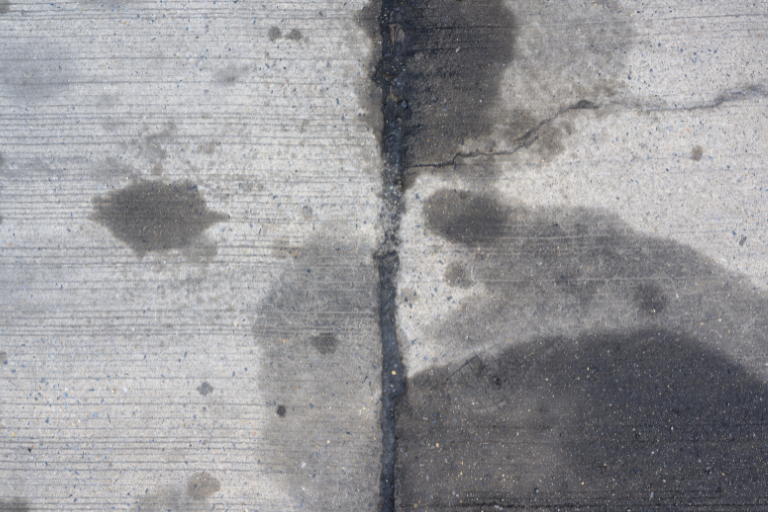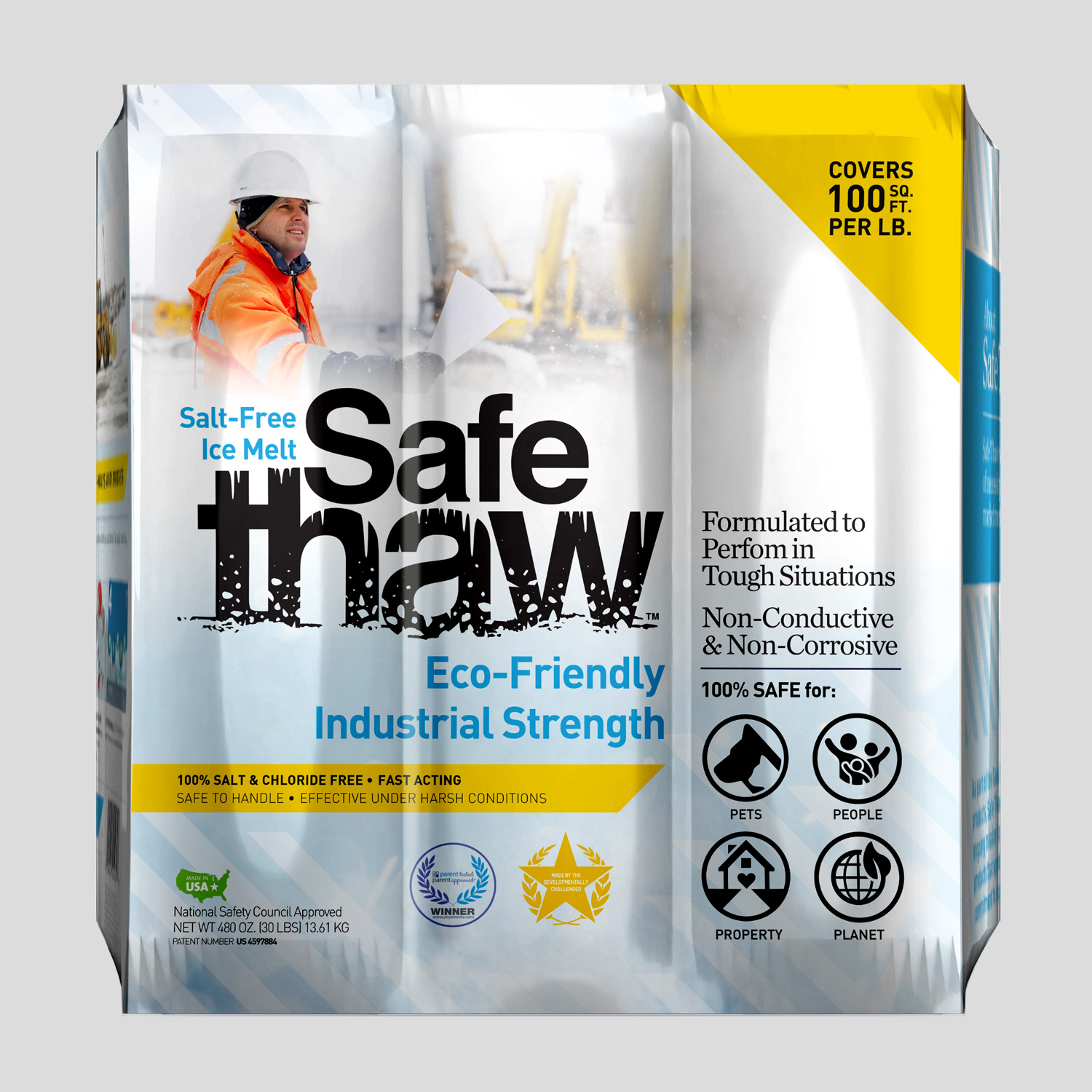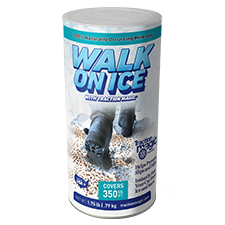Top 7 Solutions For Removing Oil Stains From Concrete Surfaces

Oil stains on concrete can be challenging to remove, but with the right approach, you can successfully clean them. Whether it’s a driveway, garage floor, or any other concrete surface, knowing how to remove oil stain on concrete and how to get rid of driveway oil stains is essential. Here are seven effective solutions to tackle these stubborn stains.

Safe Thaw
Safe Thaw was created as the ice management solution for tough winter environments. Ideal in commercial and industrial properties, shops, government agencies, bridges, and construction.
1. Use Absorbent Materials For Fresh Spills
For fresh oil stains, the first step in how to remove oil stain on concrete is to use absorbent materials. Products like cat litter, baking soda, or cornstarch are excellent for absorbing fresh oil. Sprinkle the absorbent on the stain, let it sit for several hours, then sweep it away. This method is often the first line of defense in how to get rid of driveway oil stains.
2. Apply A Degreaser
Degreasing agents can be effective in how to remove oil stain on concrete. Brands like Krud Kutter or Oil Eater offer specialized formulas that break down and lift oil stains. Apply the degreaser, let it sit, scrub it with a brush, and then rinse away. However, note that some degreasers can be harsh on the environment and may contain chemicals harmful to pets or plants.
3. Homemade Cleaning Solutions
For a more natural approach to how to get rid of driveway oil stains, homemade solutions can be effective. Mixing dish soap with hot water or creating a paste with baking soda and water can help remove oil stains. These methods are safe for the environment and pose no harm to humans or pets.
4. Commercial Concrete Cleaners
Commercial concrete cleaners, like Terminator-HSD or Simple Green Concrete and Driveway Cleaner, are designed specifically for oil stain removal. These products are formulated to penetrate the concrete and lift the stain. While effective, it’s important to consider their environmental impact, as some contain chemicals that can be harmful if not used properly.
5. Pressure Washing
Pressure washing can be an effective method in how to remove oil stain on concrete, particularly for larger or more stubborn stains. However, it’s often best used in conjunction with a cleaning agent for optimal results. Be cautious of runoff, as it can carry pollutants into the water system.
6. Steam Cleaning
Steam cleaning is another method that can be used how to get rid of driveway oil stains. The high temperature of the steam helps to break down the oil, making it easier to remove. This method is environmentally friendly but may require professional equipment.
7. Poultice For Deep Stains
For deep-set stains, a poultice made from absorbent material and a solvent can be effective. The poultice draws the oil out of the concrete. While this method can be time-consuming, it’s often necessary for older or more challenging stains.
The Impact Of Salt And Chloride-Based Ice Melts
When addressing how to remove oil stain on concrete, it’s crucial to avoid using salt and chloride-based ice melts on concrete surfaces. These products can damage concrete and make it more porous, exacerbating oil stain issues.
Safe Thaw: A Safe And Effective Alternative
For those needing an ice melt solution, Safe Thaw offers a safe alternative. Unlike traditional ice melts, Safe Thaw is chloride-free and toxin-free, making it non-corrosive and safe for concrete surfaces. This means it won’t contribute to the porosity of the concrete, making the task of how to get rid of driveway oil stains easier. Its environmentally friendly formula is safe for pets, plants, and humans.
Best Oil Stain Remover For Asphalt Driveway: How It Compares To Concrete
While the focus often stays on concrete, many people also ask about the best oil stain remover for asphalt driveway and how it compares to methods used on concrete. Asphalt has a different composition — it’s softer, more flexible, and naturally darker. This means that stains may not appear as dramatically, but they can still penetrate and weaken the surface. Unlike concrete, which benefits from poultices and degreasers, asphalt often responds better to products designed to cut through petroleum-based residues without breaking down the binder that holds the surface together.
Specialized asphalt cleaners often use citrus-based solvents or eco-friendly surfactants that lift oil without causing the surface to crumble. Using standard concrete cleaners on asphalt can sometimes backfire, so picking the right solution matters. If you’re dealing with both concrete and asphalt in one property — say a mixed driveway — it’s worth tailoring the treatment to each material rather than using one catch-all cleaner.
How To Get Oil Off Cement Driveway Without Making Things Worse
A recurring question is: how to get oil off cement driveway effectively, especially when the stain has already set? The trick isn’t only about what you use, but how quickly you act. Fresh spills are more forgiving, but older stains need a layered approach.
Start with absorbents like kitty litter to pull out as much oil as possible. Once the surface oil is absorbed, move to a degreaser or a baking soda paste. For deeper penetration, alternating between scrubbing and rinsing cycles helps lift residue over time. What you want to avoid is using harsh acids or bleach, which might lighten the concrete unevenly and leave behind a patch that looks worse than the stain.
One helpful tip: applying a protective sealant after cleaning makes it harder for future spills to soak in. This reduces the chances of asking, are oil stains permanent on concrete, because while stains can be stubborn, sealed surfaces buy you extra time to clean them before they leave lasting marks.
Are Oil Stains Permanent On Concrete? Separating Myth From Reality
So, let’s answer the big question: are oil stains permanent on concrete? The truth is, not always. Concrete is porous, so oil can seep in and bond with the material, making removal difficult. But with the right method — poultices, pressure washing, degreasers, or even biological cleaners that use enzymes — most stains can be faded to the point of being barely noticeable.
However, some stains that have been left untreated for years may never fully disappear. Instead of trying to scrub endlessly, resurfacing with specialized concrete coatings or applying tinted sealers may be the more practical solution. This approach doesn’t just cover the blemish but strengthens the surface against future damage.
It’s a reminder that prevention and quick action are your strongest allies. Left too long, stains become more about managing visibility rather than total removal.
How To Remove Oil Leak From Driveway: A Practical Step-By-Step Approach
Dealing with a recurring issue like a leaking vehicle raises another important question: how to remove oil leak from driveway without constantly battling new stains? The answer is part cleaning, part prevention.
First, absorb the fresh spill immediately using materials like sawdust or absorbent pads. Then clean with a mild degreaser and rinse thoroughly. If the leak is chronic, place drip pans or absorbent mats under the vehicle to stop new stains from forming. You can also invest in products designed for continuous use, such as microbial cleaners that “eat” petroleum residues over time, keeping the driveway looking fresh without constant scrubbing.
If your driveway combines both asphalt and concrete sections, tailor your cleaning products accordingly — asphalt-friendly removers for blacktop, and more aggressive degreasers or poultices for the cement.
Beyond Cleaning: Long-Term Strategies To Protect Your Driveway
Removing oil is one thing, but avoiding future problems is another. One overlooked strategy is choosing the right maintenance schedule. Cleaning every few months, even when stains aren’t visible, prevents buildup. Sealing concrete with penetrating sealers not only makes oil easier to clean but also protects against winter damage from freeze-thaw cycles. Pair this with chloride-free deicers, and you minimize both staining and surface deterioration.
It’s also wise to rethink where leaks happen most often. Garages and driveways near frequently used parking spots benefit from protective mats. Businesses with vehicle traffic may opt for industrial-strength absorbents that keep surfaces clear while reducing slip hazards.
100% salt & chloride-free, fast acting Ice Management Solution
Conclusion
Learning the best oil stain remover for asphalt driveway or figuring out how to get oil off cement driveway is really about understanding your surface and matching it with the right solution. Concrete may hold stains deeper, but it responds well to poultices and pressure washing. Asphalt may hide marks better but needs cleaners that don’t break down its binder.
So, are oil stains permanent on concrete? Not always — quick response and the right cleaner can erase most evidence. And if you’re asking how to remove oil leak from driveway long term, think prevention as much as cleaning: absorb spills quickly, seal surfaces, and use protective mats or microbial solutions for recurring issues.
Ultimately, it’s less about battling stains endlessly and more about creating a system — one where safe cleaning products, protective sealants, and responsible ice melt choices like chloride-free formulas all work together. That’s how you protect both appearance and longevity, keeping driveways strong and clean through every season.
Try Also Our Other Winter Safety Products:
Safe Paw
The Original and #1 Selling Pet and Child Safe Ice Melt for over 20 years. Guaranteed environmentally safe –It won’t harm animals or children, and it won’t damage your property. That’s Safe Paw. Safe Paw can change how winter affects our planet.

Walk On Ice
The handy disposable canister can be taken everywhere, with the same 100% naturally occurring minerals that provide instant traction on ice or snow. Use it on sidewalks, steps, or as an instant traction agent for your car.



